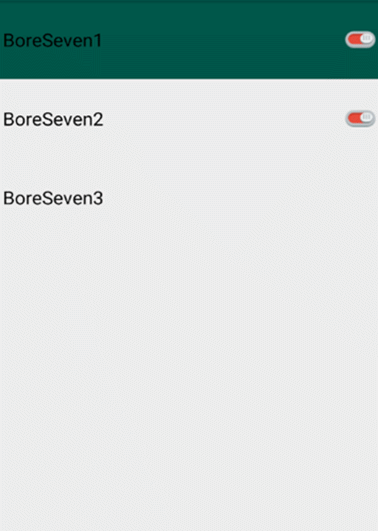一、概述
Spring 项目使用 AOP 功能需要定义三个部分:切面、切点和通知。
二、AOP 使用
Spring 基于 XML 配置 AOP 的方式不会侵入源码,但需要维护更多的配置文件。
1. 定义切面
引用 Spring 管理的 Bean,使用 来定义切面。
<beans> <bean id="demoAspect" class="...DemoAspect"/> <aop:config> <aop:aspect ref="demoAspect"> ...... </aop:aspect> </aop:config> </beans>
2. 定义切点
在切面内使用 来定义切点,然后在通知中使用 pointcut-ref 来指定切点。
切点表达式用来匹配切入的目标类和方法。目标类只能是 Spring 容器管理的类,切面只能切入 Bean 中的方法。
<beans> <bean id="demoAspect" class="...DemoAspect"/> <aop:config> <aop:aspect ref="demoAspect"> <aop:pointcut id="myPointcut" expression="execution(* cn.codeartist.spring.aop.xml.*.*(..))"/> <aop:before pointcut-ref="myPointcut" method="doBefore"/> </aop:aspect> </aop:config> </beans>
切点表达式也可以在定义通知的时候指定,而不需要使用 标签。
<beans> <bean id="demoAspect" class="...DemoAspect"/> <aop:config> <aop:aspect ref="demoAspect"> <aop:before pointcut="execution(* cn.codeartist.spring.aop.xml.*.*(..))" method="doBefore"/> </aop:aspect> </aop:config> </beans>
3. 定义通知
定义通知的时候需要指定切点,通知的类型决定了切入的节点。
在切面里使用通知标签中的 method 属性来绑定方法。
public class DemoAspect { public void doBefore(JoinPoint joinPoint) { // do something } public void doAfter(JoinPoint joinPoint) { // do something } public void doAfterReturning(JoinPoint joinPoint) { // do something } public Object doAround(ProceedingJoinPoint joinPoint) throws Throwable { // do something Object proceed = joinPoint.proceed(); // do something return proceed; } public void doAfterThrowing(JoinPoint joinPoint) { // do something } }
前置通知
使用 定义前置通知,在方法执行前添加操作。
<aop:config> <aop:aspect ref="demoAspect"> <aop:pointcut id="myPointcut" expression="execution(* cn.codeartist.spring.aop.xml.*.*(..))"/> <aop:before pointcut-ref="myPointcut" method="doBefore"/> </aop:aspect> </aop:config>
后置通知
使用 注解定义后置通知,在方法正常返回时执行,方法抛异常不执行。
<aop:config> <aop:aspect ref="demoAspect"> <aop:pointcut id="myPointcut" expression="execution(* cn.codeartist.spring.aop.xml.*.*(..))"/> <aop:after-returning pointcut-ref="myPointcut" method="doAfterReturning"/> </aop:aspect> </aop:config>
环绕通知
使用 注解定义环绕通知,切入方法前后,相当于拦截器的功能,可以捕获异常处理。
环绕通知的切入点参数为 ProceedingJoinPoint,并且需要手动调用 proceed() 来执行切入点方法的逻辑。
<aop:config> <aop:aspect ref="demoAspect"> <aop:pointcut id="myPointcut" expression="execution(* cn.codeartist.spring.aop.xml.*.*(..))"/> <aop:around pointcut-ref="myPointcut" method="doAround"/> </aop:aspect> </aop:config>
最终通知
使用 注解定义最终通知,在方法退出时执行,无论是正常退出还是异常退出。
<aop:config> <aop:aspect ref="demoAspect"> <aop:pointcut id="myPointcut" expression="execution(* cn.codeartist.spring.aop.xml.*.*(..))"/> <aop:after pointcut-ref="myPointcut" method="doAfter"/> </aop:aspect> </aop:config>
异常通知
使用 注解定义异常通知,在方法抛出异常时执行。
<aop:config> <aop:aspect ref="demoAspect"> <aop:pointcut id="myPointcut" expression="execution(* cn.codeartist.spring.aop.xml.*.*(..))"/> <aop:after-throwing pointcut-ref="myPointcut" method="doAfterThrowing"/> </aop:aspect> </aop:config>
4. 通过 Advisor 实现
使用 Advisor 能以编程的方式创建切面,需要实现通知的 API 来定义通知的类型。
比起使用注解定义切点,这种方式指定切点表达式更灵活。
<beans> <bean id="beforeAdvice" class="...BeforeAdvice"/> <aop:config> <aop:advisor pointcut="execution(* cn.codeartist.spring.aop.xml.*.*(..))" advice-ref="beforeAdvice"/> </aop:config> </beans>
三、附录
1. 常用配置
| 配置 | 描述 |
<aop:config> |
配置 AOP 功能 |
<aop:aspect> |
定义切面类 |
<aop:pointcut> |
定义切点,指定切点表达式 |
<aop:before> |
定义前置通知 |
<aop:after-returning> |
定义后置通知 |
<aop:around> |
定义环绕通知 |
<aop:after> |
定义最终通知 |
<aop:after-throwing> |
定义异常通知 |
<aop:advisor> |
使用 Advisor 方式创建切面 |
2. 示例代码
Gitee 仓库:
https://gitee.com/code_artist/spring
项目模块:
spring-aop
示例路径:
cn.codeartist.spring.aop.xml


